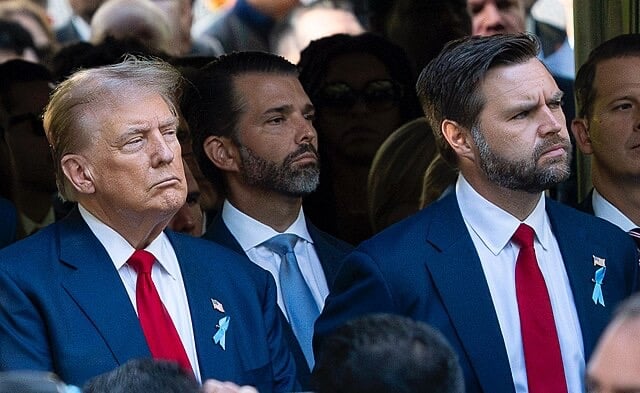A Stark Reality Check from the U.S. Vice President
In a sobering interview on Fox News, U.S. Vice President JD Vance made headlines by stating what many experts have long suspected: the Russia-Ukraine war is far from over. Speaking bluntly, Vance said, “It’s not going anywhere… it’s not going to end any time soon,” highlighting what may be a turning point in both American foreign policy and global conflict resolution.
This rare moment of candor has already triggered waves of diplomatic reaction and introspection from Washington to Kyiv. As the Biden-era optimism about Ukraine’s battlefield victories fades, Vance’s comments may mark a hard pivot toward realpolitik and scaled-back interventionism.
“It’s Not Going Anywhere”: The Full Quote Explained
JD Vance’s full remarks came during an appearance on Special Report with Bret Baier, where he emphasized that both Ukraine and Russia already “know each other’s terms” and that a diplomatic solution now lies solely in their hands.
“It’s going to be up to them to come to an agreement and stop this brutal, brutal conflict,” Vance said. (Reuters)
This isn’t just commentary. It’s a policy signal. With these remarks, the U.S. is seemingly acknowledging its limited leverage in ending the war and shifting responsibility to the warring states themselves.
Ending America’s Active Role in Mediation
Following Vance’s remarks, the U.S. confirmed it would step back from its mediation efforts in Ukraine. According to a report in The Times, the Biden administration has decided to halt shuttle diplomacy aimed at brokering a ceasefire.
“We’re not going to spend our time flying between Kyiv and Moscow unless they show they’re serious,” said a State Department source.
This withdrawal doesn’t mean abandoning Ukraine—but it does suggest that the era of aggressive U.S.-led peacemaking may be ending.
Zelenskyy’s Cold Shoulder to “Ceasefire Deals”
Ukrainian President Volodymyr Zelenskyy has shown skepticism toward Russian proposals for temporary ceasefires, particularly one aimed at coinciding with Russia’s Victory Day celebrations.
As The Times reported, Zelenskyy rejected the idea, fearing a “frozen conflict” scenario similar to what’s occurred in Georgia and Moldova.
“We don’t need a pause. We need peace,” Zelenskyy said during a national address.
NATO Allies Divided Over Vance’s Tone
JD Vance’s blunt assessment has not gone unnoticed in Europe. Some NATO allies are quietly supportive, seeing it as a pragmatic reset, while others worry it could signal weakness in the face of Russian aggression.
EU leaders such as Emmanuel Macron and Olaf Scholz are reportedly concerned about the lack of a clear U.S. game plan beyond pulling back.
What This Means for the Russia-Ukraine Battlefield
On the ground, the war appears locked in stalemate. Neither side has managed to deliver a decisive blow in months. Ukraine’s recent counteroffensives have made incremental gains, while Russia maintains firm control of the Donbas and southern corridor.
Analysts believe that without fresh peace proposals or escalated military aid, the war could drag on for years, draining resources and morale on both sides.
A New Chapter in U.S. Foreign Policy?
Vance’s comments are being interpreted as a shift toward “strategic restraint”. This isn’t isolationism, but a measured recalibration of American involvement overseas. Critics argue it’s a retreat from leadership, while supporters say it’s long overdue realism.
Could this be the start of an “America First” return in foreign affairs?
Is a Negotiated Settlement Even Possible?
Despite the grim tone, diplomats still believe a deal is possible—but only if both sides feel they’ve hit a dead end militarily. The precedent of long, negotiated ends to war—like Dayton Accords in Bosnia or Bonn Agreement in Afghanistan—still offers hope.
Conclusion: Realism or Retreat?
JD Vance’s admission may go down as a defining moment of U.S. diplomacy in 2025. It’s not an abandonment, but a reset. One that forces Ukraine and Russia to lead their own path to peace while the world watches, supports, and prays.
FAQs
What exactly did JD Vance say about the Russia-Ukraine war?
Vance said, “It’s not going anywhere… it’s not going to end any time soon,” referring to the ongoing nature of the war and calling for Ukraine and Russia to negotiate directly.
Is the U.S. pulling out of the peace process?
The U.S. is scaling back its mediation efforts but will remain supportive of Ukraine. It’s now encouraging Kyiv and Moscow to negotiate without heavy American involvement.
What is Ukraine’s stance on current negotiations?
President Zelenskyy has rejected Russian ceasefire proposals that he believes would freeze the conflict and consolidate occupation zones.
How is the international community reacting?
Mixed reactions—some support the realistic tone, while others fear it may embolden Russia and weaken Ukraine’s bargaining power.
What are the long-term implications?
Potential for a prolonged stalemate, a shift in global diplomatic dynamics, and a reassessment of U.S. priorities in foreign conflict zones.



